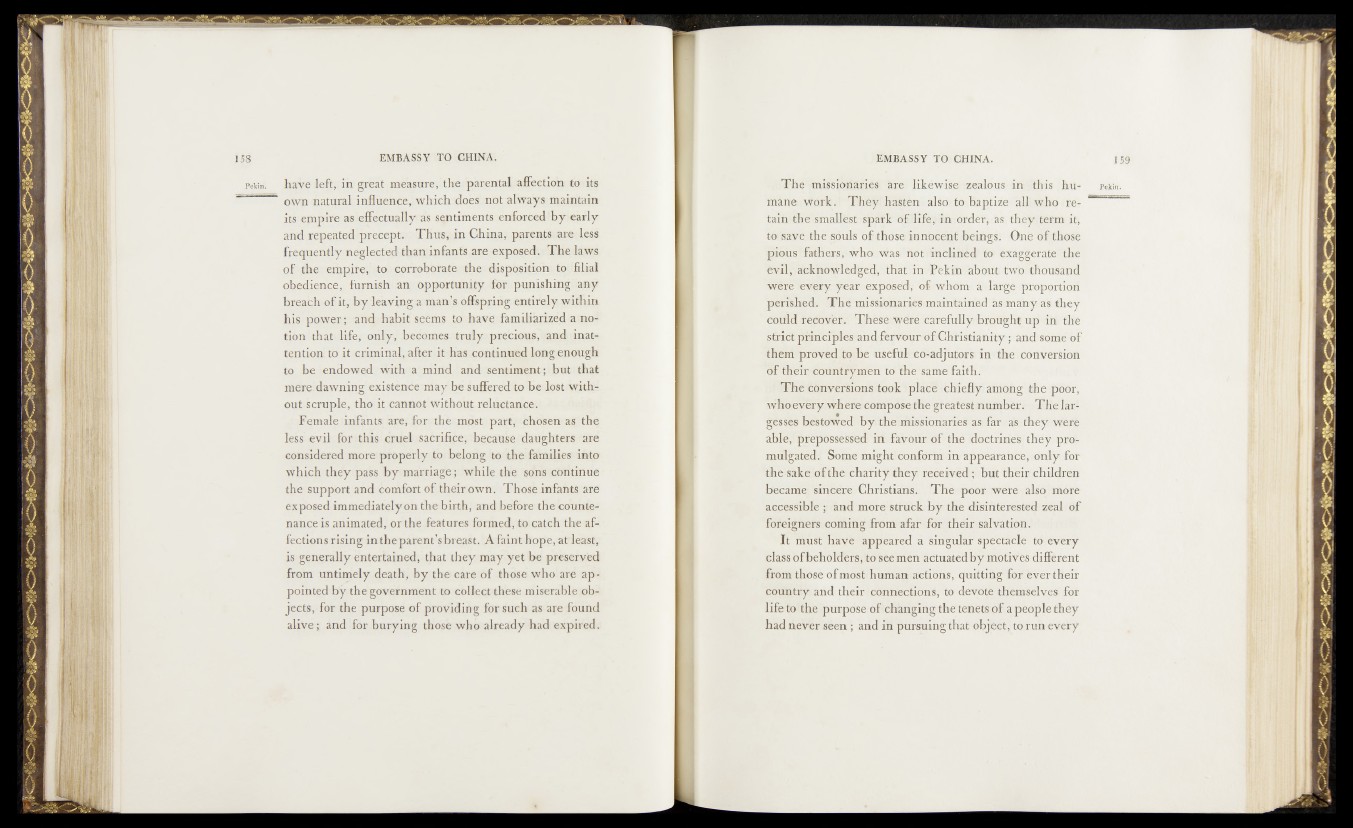
pekm: have left, in great measure, théffèrental affection to its
"" own natural influence^ which does not always maintain
its empire as effectually sis sentiments enforced by>eâ#l>y
and repeated precept. Thus^ in Chinât^ parents aw less
frequently neglected than infants are exposed. ; The laws
of the empire, , to corroborate the disposition to filial
obedience, furnish, an opportunity for punishing any
breach of it, by leaving a m a n j offsprihg entirely witiEi%
his power; and habit seems to have familiarized aipal
tion that life, onlyÿ beeomes truly precious, sand, inat-i
tention to it criminal, after it has co n tin u ^ long enongh
to be endowed with a mind and sentiment; but that
mere dawning existence may be suffered to be lost without
scruple, tho it cannot without relnctafl^4% ^
V Female infants are, for the most part, bhösen as the
less evil for this cruel sacrifice, because daughters are
considered more properly to belong to the families into
which they pass by marriage ; while the setós coUtinue
the support and comfort of their own. Those infants are
exposed immediately on the birth, and before the countenance
is animated, or the features formed, to catch the af-
fections rising in the parent’s breast. A faint hope, atieast,
is generally entertained, that they may yet be preserved
from untimely death, by thecare of those who are appointed
by the government to collect these miserable objects,
for the purpose of providing for such as are found
alive; and for burying those who already had expired.
The missidn^ likewise ixealous incthis humane
work-..* T:h'4fj' ha^sfon j&Hfgfi baptize- all' who re-
t-aih tfj-’e(SjnallestVspark of llifo,1 'ia.orde^ius,they,term it;
t-Oi'save the ,souls ofthose’irinbce’n l beings? One of these
pious fathers ;who wa»! nothin dined to Cxag^rlte)' the
ackhowled^edty thjalbinvFekm aboutft|\vb&housanql
were every, .year exposed-,' ofi whom*: a 5 laige^pr»p$Mod
perished. The missionaries maintained asmany aatihey
could recover. T>hese;wdire carefully 'broa^hfrupHlii die
strict principles and fervour o f Christianity; i and some of
them proved tothe useful’ co-adj utors.' in the ; conversion
Of fheic/coliftT^men to th ^ arfie'failfff#
The conversions took ipkoltiehiefty among ThetffSor,
who every .whereicompose the greatest number. TKellar-
gessies bestowed by. thejniassionaries as far a!s'they were
able, prepossessed1 iri favour of the’ doctndes? they promulgated.
Some might conform in appearaix^ only for
the;sike of the cbarity they received ; but their children
became sincere Christians. The poor were also more
accessible; and more struck by the disinterestdl zeal of
foreigners coming from afar for their salvation-.;,1
It must Appeared a singular el#-tdrevery
class of beholders, to see men actuated by motives different
from those of ihosl human ‘actions, quitting for fever tHeir
coiiatty and their connections, to dfevj6|h themsdYesi.for
life to the purpose of changing the tenets of a people they
had never seen; and in pursuing that objesct, to run every